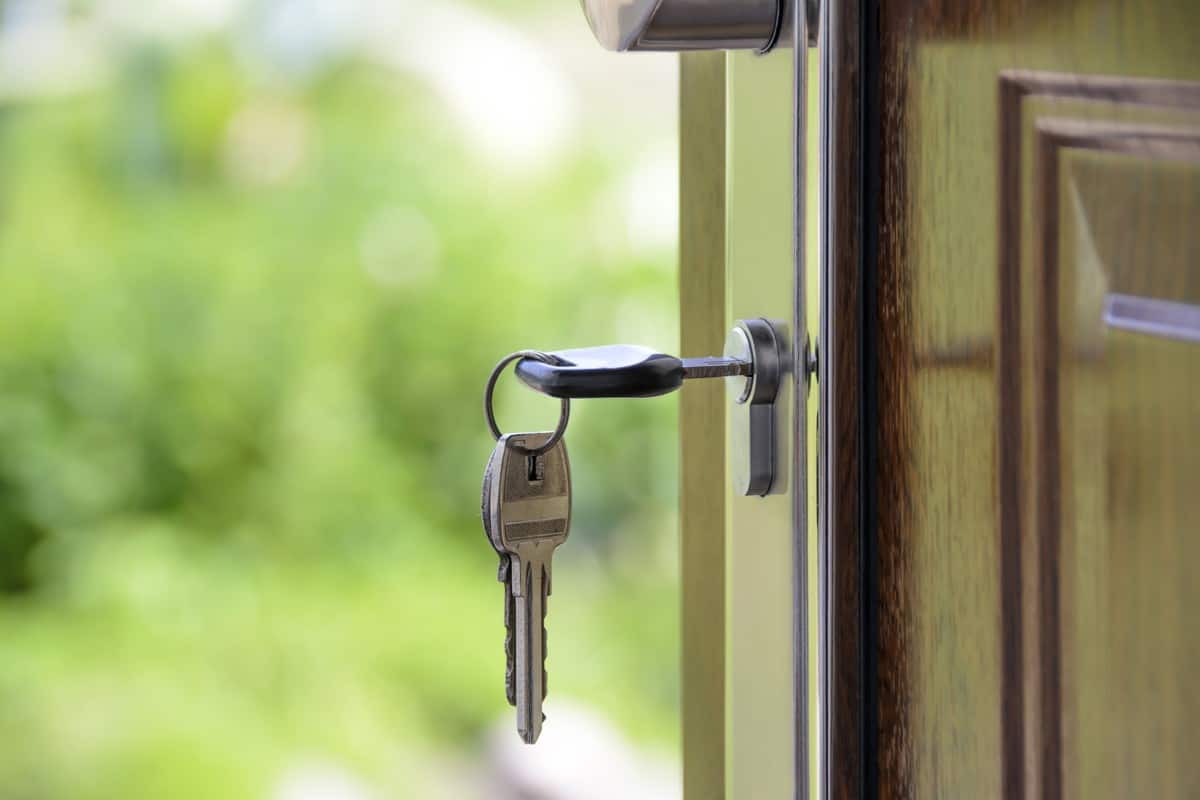When you’ve fallen in love with a home, it may be tempting to breeze through the home inspection—or skip it altogether. This may be a costly mistake.
“Not everyone is looking to buy a perfect home, but it’s important to know the cost of keeping the property in good, livable condition,” says Karen Parnes, broker and owner of NextHome Your Way in Rockville, Maryland.
The home inspection is one of the most important steps in the homebuying process. Depending on your purchase contract, you may have the chance to renegotiate or walk away from the deal.
Here’s what you need to know — including a home inspection checklist.
Home Inspection Basics
The home inspection, which usually happens after signing the home’s purchase agreement, offers a closer look at one of the biggest investments you’ll ever make.
“Home inspections take emotion out of the equation and offer an unbiased view of the property,” says Stacy Bergman, owner and inspector at Shut The Front Door Home Inspections, a company that serves Westchester, Putnam, and Fairfield Counties in Connecticut and New York.
How much does a home inspection cost?
You can expect to spend anywhere from $300 to $500, according to the U.S. Department of Housing and Urban Development, depending on the size of the property and location. The home inspection report should cover everything from the home’s structure to roof, systems, and components.
How long does a home inspection take?
The average single-family home inspection takes three hours, according to Parnes. But the length of time may vary, depending on the type—like a condo vs. single-family home—and square footage, says Bergman.
Do I need to be there for the home inspection?
Yes. Parnes recommends all prospective buyers walk through the property with the home inspector.
Why do I need a home inspection?
The home inspection is a unique opportunity to gather more information, which may impact your final decision about whether to buy the home. Or it may offer the chance to get ahead of future maintenance and repairs.
“It’s a chance to get educated, learn how to maintain the property, and know where the safety features are — like the main water shutoff valve,” Bergman says.
How To Find a Home Inspector
As the closing date approaches, you may feel eager to find a home inspector you can trust. While it’s easy to go with a quick referral from your real estate agent, you should also do some vetting on your own.
- Learn about your state’s licensing requirements – Begin the process by learning about your state’s home inspection regulations.
- Check their credentials – If your state requires a home inspection license, double-check your home inspector’s professional standing. You can also look for certification from one of the top professional home inspection organizations: American Society of Home Inspectors (ASHI), International Association of Certified Home Inspectors (InterNACHI), or National Academy of Building Inspection Engineers (NABIE).
- Check online reviews – You can search for online reviews through the Better Business Bureau, Angie’s List, Yelp, or Google My Business. Watch for home inspectors who won’t answer questions or don’t spend enough time reviewing the property.
What To Expect on Inspection Day
Before inspection day, take some time to prepare questions. Bergman says the home inspector may arrive an hour early to examine the exterior—which may include the home’s roof, foundation, and structure. She suggests asking your questions before the interior inspection begins.
The interior inspection is a chance to learn more about what’s happening inside your home. The home inspector will check all the rooms of your home, appliances, heating and cooling systems, interior plumbing, and electrical systems.
Make note of any general recommendations. “We can offer routine maintenance tips that may be helpful for first-time homeowners,” she says.
After the interior inspection ends, you’ll have another opportunity to ask follow-up questions. Bergman says you can expect to receive the full home inspection report within 24 hours.
The Home Inspection Report
The home inspection report covers the property’s current condition and issues. Bergman says the report will include many pages about the home’s current state—including major issues, safety concerns, and routine maintenance tips.
Home inspection terms to know
You may also notice the following terms to describe your home’s issues:
- Material defect – There’s a specific issue with one of the home’s systems or components that may have a negative impact on the property’s value or safety.
- Major defect – One of the home’s systems or components doesn’t work and/or may be unsafe. You may need further evaluation to decide on a repair or replacement.
- Minor defect – One of the home’s systems or components doesn’t work. You can work with a home contractor to repair or replace it.
- Cosmetic defect – The home has a minor flaw or blemish that won’t impact functionality or safety.
Bergman cautions prospective buyers to read the report carefully. “The home inspection isn’t always about the major defects. There may be a lot of smaller issues that could add up,” she says.
If the report uncovers major issues, it may be possible to back out of the contract. But only if your original offer had an inspection contingency, which says the final deal depends on the inspection report. She says you may also use the report to negotiate on the price of the home or ask for repairs.
What happens if you find problems after moving in?
Even with a thorough home inspection, there’s still a chance you may discover a problem later.
“A home inspection is visual and non-invasive,” says Bergman. “It’s a snapshot in time.”
For example, an inspector could fail to report that the vent pipe on the roof isn’t the right height. Snow could cover the vent and block the airflow, which could cause toxic gasses to enter the home. Bergman says there’s a pre-inspection agreement to cover liability and explain how to handle a scenario like this.
“Most inspectors carry errors and omissions insurance and will defer to insurance companies for assistance on resolutions,” she adds.
As an InterNACHI Certified Professional Inspector, her company participates in their buy back guarantee, which promises to buy your home back if they miss anything. The guarantee is good for up to 90 days after closing.
But if the seller hid a major problem with the home, you might have legal recourse—if you can prove they were deceptive. One way to protect yourself is by asking for a seller’s disclosure.
“Some places require sellers to provide a disclosure of major defects in the home,” says Bergman. “If a defect isn’t disclosed, the seller may be liable for the expense.”
If your state requires a seller’s disclosure, you should receive it within a few days of signing the purchase offer.
Home Inspection Checklist
While every inspection is different, many homes have similar systems and components. Here’s a checklist of what to look for on your home inspection report, according to InterNACHI.
You can see the complete list of exactly what to look for, and what the inspector won’t check, here. You can compare it alongside your home inspection report, along with notes from the inspector.
Bergman says you should also consider separate testing for mold, termites, and radon, which may be safety hazards.
- Attic, insulation, ventilation
- Insulation and ventilation in unfinished spaces (energy efficient and moisture control)
- Mechanical exhaust systems (ventilation from inside to outside)
- Bathrooms
- Kitchen
- Laundry
- Basement, crawlspace, foundation (structural issues with foundation and framing)
- Basement or crawlspace
- Foundation
- Other structural components
- Built-in appliances
- Cooktops, ovens, ranges (basic functionality)
- Cooling system (energy sources and distribution)
- Dishwasher
- Doorbell
- Doors, interiors, windows
- Ceilings
- Cooktops, ovens, ranges
- Doors
- Floors
- Garage vehicle doors
- Ramps and stairs
- Railings
- Walls
- Windows
- Electrical
- Circuit breakers and fuses
- Electric meter and base
- Smoke and carbon monoxide detectors
- Switches, light fixtures, receptacles
- Fireplace
- Chimney
- Cleanout and damper doors
- Fireplace
- Lintels above the fireplace opening
- Food waste disposer
- Gas supply systems
- Heating system (energy sources and distribution)
- Home exterior
- Balconies, carports, decks, patios, porches
- Driveways and walkways
- Drainage, retaining walls, vegetation
- Exterior doors
- Exterior wall coverings, flashing, trim
- Railings
- Ramps, stairs, stoops
- Windows
- Hot tubs, spas, swimming pools
- Lawn and garden sprinkler system
- Microwave oven
- Outbuildings
- Outdoor cooking equipment
- Plumbing
- Drain, vent, waste system
- Drainage sump pumps
- Interior water supply
- Main fuel supply shut-off valve
- Main water supply shut-off valve
- Showers, sinks, tubs
- Toilets
- Water heating equipment
- Private septic systems (water quality and public vs. private)
- Private water wells
- Roof
- Downspouts
- Eaves
- Gutters
- Roof materials
- Vents
- Security systems
- Trash compactor
- Whole-house vacuum systems
A Final Word of Advice: Be Proactive With Your Home Inspection
The home inspection may be something you’re eager to cross off your to-do list, but it’s critical to pay close attention from start to finish. By working with an experienced home inspector, you’re less likely to find any major surprises. But no home is free of problems.
“It’s important to know any property will need ongoing maintenance and repairs,” says Parnes. By knowing what to expect, you can start preparing before you even move in.



